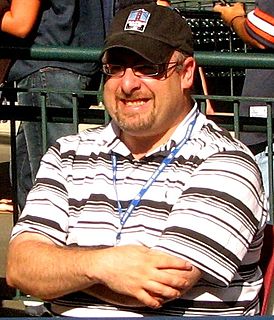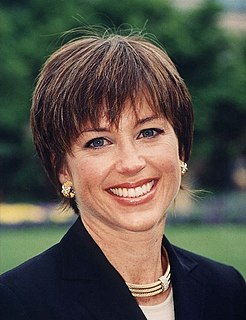A Quote by Alice Oswald
People are so used to reading novels now, they just read a poem straight through to get the meaning. And that's something totally different from the slow way you read something if it's a tune; which to me a poem has to be.
Related Quotes
Whenever I read a poem that moves me, I know I'm not alone in the world. I feel a connection to the person who wrote it, knowing that he or she has gone through something similar to what I've experienced, or felt something like what I have felt. And their poem gives me hope and courage, because I know that they survived, that their life force was strong enough to turn experience into words and shape it into meaning and then bring it toward me to share.
I feel like the older I get, the truer it feels that I'm only going have an investment in a poem if it allows or forces me to bring something that's supremely me onto the page. I used to think that the speaker of a poem was talking to someone else, to some ideal reader or listener, but now I think that speakers - poets - are talking to themselves. The poem allows you to pose questions that you have you ask of yourself knowing that they are unanswerable.
One of the things that was really influential early on was Ezra Pound's Cantos, one poem he worked on for 50 years. It's epic. I had a great deal of difficulty understanding it. One of the problems was you'd be reading along in English and he would move to a Chinese ideogram or French-he actually used seven different languages in a given poem. And for somebody who's not fluent in different languages it has the impact of rupturing your way of understanding something.
Truly fine poetry must be read aloud. A good poem does not allow itself to be read in a low voice or silently. If we can read it silently, it is not a valid poem: a poem demands pronunciation. Poetry always remembers that it was an oral art before it was a written art. It remembers that it was first song.
Theology is-- or should be-- a species of poetry,which read quickly or encountered in a hubbub of noise makes no sense. You have to open yourself to a poem with a quiet, receptive mind, in the same way you might listen to a difficult piece of music... If you seize upon a poem and try to extort its meaning before you are ready, it remains opaque. If you bring your own personal agenda to bear upon it, the poem will close upon itself like a clam, because you have denied its unique and separate identity, its inviolate holiness.
Often you've read another poem that you think is so beautiful that you'd like to make something like that. And so you try to make a sonnet that works in a certain kind of way, or you try to make something that's songlike, or you create a refrain, or you love the way a poem works in two line stanzas and you try to do that.
My first advice would be to read, read, read, which sounds interesting coming in a digital age, but it's so much easier to listen to a poem than it is to sit down and actually read it and to hear it in your head and that is something that every poet or aspiring poet needs to be able to do, I think to hear it in their head.






































